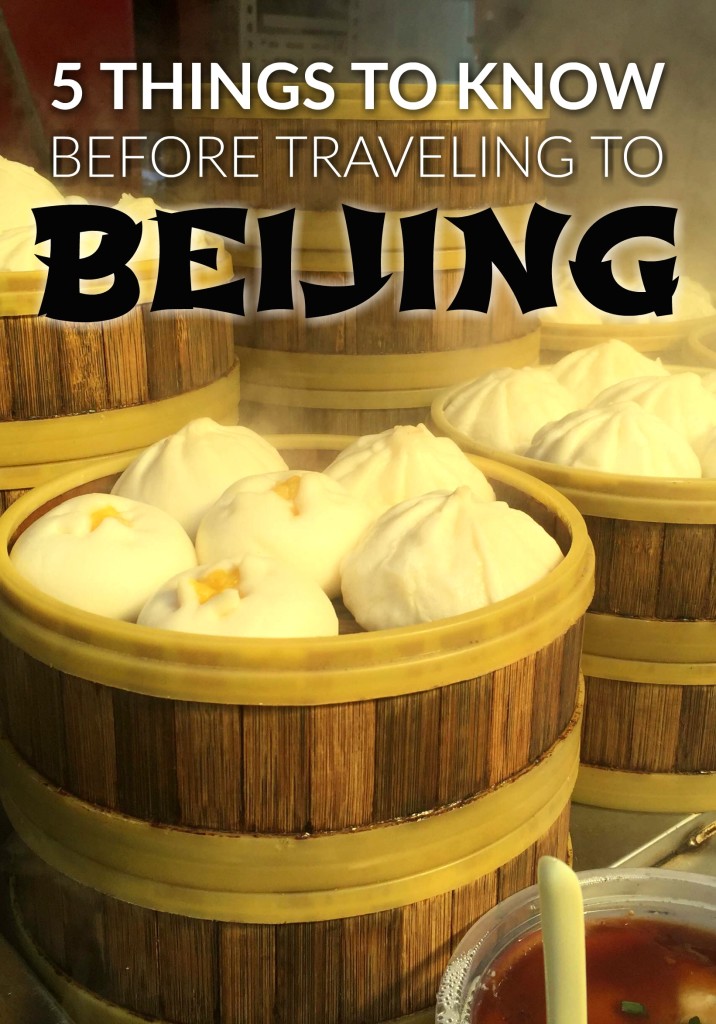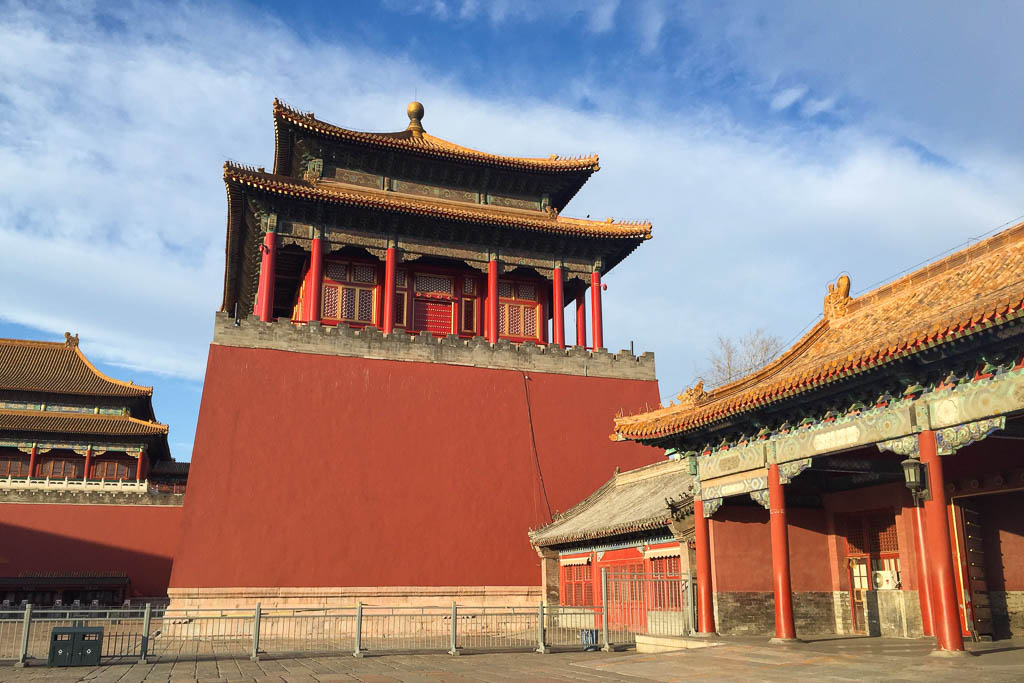So, you’re traveling to Beijing, China? Here are five things I wish I knew before heading there myself.
- Beijing has been in the news a lot lately because of its pollution problem. Perhaps you’ve heard the term “airpocalypse?” Don’t get me wrong – pollution is a major problem. But, if you ask me, it’s a bit sensationalized by the media, and it shouldn’t deter travelers from going to Beijing. There are some days when the air is so bad you literally can’t see across the street, but in my experience, there are many days where the air is good and the skies are blue. I suggest getting the Beijing AQI app, which gives current readings of the air quality. I personally wore a mask any time the air level reached the 150-200 mark.
- The metro system in Beijing rocks. I’m horrible at navigating new cities and even I found it to be really easy to use. It definitely helps that there are signs in English. Another added perk is that it’s really cheap! Rides anywhere in the city cost 2-5 yuan (or kuai as they say in Beijing), which is less than $1. The Metro Beijing Subway app is great for figuring out routes and estimating the time it will take you to reach your destination. And if you need a map of Beijing’s metro system download this app. Try to avoid rush hour – any time before 9am and starting around 6pm – because the crowds are a bit intense.
- A lot of travelers don’t realize that many websites are blocked in China. Basically, all things Google are blocked, meaning that Google, Google Maps, and Gmail don’t work. Major social media sites like Facebook, Twitter, Instagram and Snapchat are also inaccessible. The good news is that you can use a VPN (virtual private network) to get around China’s “Great Firewall.” I personally used StrongVPN. It worked really well for me and only put me back $10 for a month. But I suggest doing your own research on which VPN to get. Also, you’ll need to set up your VPN before you enter China.
- In Beijing, people eat family style. Unlike in the US where we order individual meals, Beijing locals order tons and tons of different dishes and the whole table shares them. If you’re a picky eater or have dietary restrictions it can make things a bit complicated. (I’m a vegetarian, so that made things slightly challenging.) But if not, it’s a great way to sample the abundance of different foods available in Beijing. The bill is usually split down the middle, regardless of how much food and drink you’ve consumed.
- People in Beijing speak Mandarin, and English is not widely spoken. Knowing a little Mandarin (like numbers and foods) will go a long way. Most signs and menus are in Chinese characters, which is jarring at first – at least it was for me! I hadn’t really thought about how difficult this would make ordering food or even recognizing store fronts. If I was lost or needed to ask a question in Mandarin, I found that translation apps were a lifesaver in Beijing. Most will translate words and phrases into Mandarin (both in Pinyin and Chinese characters) and they even give you the correct pronunciation.
Have you been to Beijing? What tips would you add?



